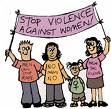
The choice is ours - the chorus master is struck dumb
Jonathan Jansen: Every now and again something happens that forces South Africa to stare its still unresolved racial troubles in the face.
So it was with the death at the weekend of Eugene Terre Blanche - as it was with the St James Church massacre, the Skierlik shootings and the Reitz incident, to name but a few. At such points, as angry white citizens face off against angry black citizens, the nation has a choice.
It can descend into a racial feeding frenzy of bitterness, accusation and retaliation. Or it can draw people together in common cause to learn from an atrocity and to build lasting foundations for peace and social justice.
For the latter to happen, strong leadership needs to be asserted that brings people together into dialogue and deliberation. Sadly, time after time, such leadership is in short supply.
The easy part is the shouting, the threats, the reaction to what seems obvious. "He lived and died by the sword," many said; "Served him right," I heard often.
The difficult part is asking what was really going on. Let's take another look at the murder of South Africa's most emboldened white supremacist.
Few people deliberate on the still untransformed race relations that characterise the rural landscape of the country.
On many farms in this land, old relations of white baasskap and black servitude remain unchanged despite the broader democratisation of society.
This is where physical intimidation, assault and insult remain the experiences of many farm workers.
Black anger has been building up steadily. Small wonder people around the farm rejoiced at the murder of Terre Blanche. It is from these rural farmlands that many white students come to university demanding the same kinds of relationships. Placed inside the intimate confines of shared residences, trouble is unavoidable.
But take another look at the farmlands of South Africa. Now change your spectacles. On plots and smallholdings, on small and large farms, sit an increasingly scared people. They are white, and more of them are becoming poor. They have erected all kinds of barricades and organised local security teams to protect them against the invasion of farms by black criminals who maim and murder on a regular basis. The police are slow to respond; murderers are seldom caught.
Day after day, the Afrikaans dailies carry gruesome photographs and lead stories about white people, Afrikaners, murdered on their farms. Afrikaans radio stations, such as Radio Pretoria, repeat the details of these massacres over and over again.
Then, to further stress and strain the nerves of these vulnerable farmers, they hear a song with unmistakable murderous lyrics being revived from within the ruling party. It is not only that [ANC Youth League leader] Julius Malema leads the singing; it is that his seniors, including the secretary-general of the party, defend it.
Worse, the president of the country is silent on the matter. Does this mean that the killing of Boers again enjoys official sanction? No amount of re-interpreting of the song in its historical context helps those who feel the heat of exposure and attack on these farms. It is like the security forces of old trying to tell black people that "permanently remove from society" (as erstwhile security documents revealed) does not mean kill the activists. Kill means kill.
Then another farmer dies, his face hacked into pieces through the systematic blows of panga and knobkierrie in his dilapidated farmhouse. A movement that was slowly dying out, the AWB, suddenly gets 3000 new signatories, if the beweging's leaders are to be believed. Racial hatred and confrontation are back in public view.
"Should I pack my bags and leave now?" a (black) stranger asked me in a shop the other day.
The country will not implode. The AWB has no force any longer. The middle ground of decent white and black South Africans is too strong. But these incidents of racial attack slowly but surely erode the confidence of the economic classes that keeps the country afloat. Without leadership that deals with underlying causes, and not only symbolic acts (important though they are), such as visiting white squatters, these incidents will recur.
What can be done?
Stop the singing of that pernicious song immediately. It is hurting all our people. Intervene in the rural farming areas, not by threatening white farmers with confiscation of their land, but by building relationships between farmers and farm workers that are dignified and respectful. This will eventually lead to a peaceful resolution of the land problem.
























1 comment:
This speech should be translated, photocopied and distributed to all South Africans, at schools, hospitals, prisons, companies, residences, etc. It should be discussed and studied by the nation.
The man has got brains and a lot of common sense.
Stop feeling sorry, talking and dwelling in the past and start acting and moving forward.
Maria Helena
Post a Comment